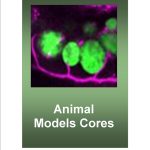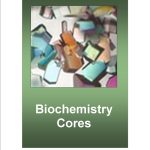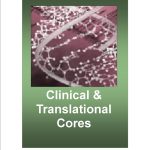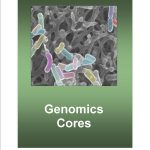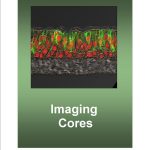UNC Biochemistry Core Facilities and Resources
Contents
These pages list our core facilities by areas of focus. These are brief profiles of the cores; to find more detailed information on each core, including location, contact information, and equipment lists, please check out their facility overview in their listing in our searchable database.
The biochemistry cores offer resources to investigators working on the molecular analysis of genes, proteins, peptides, cells and tissues. Analytical approaches include mass spectrometry, NMR spectroscopy, x-ray crystallography and bioinformatics.
Atomic Absorption
Atomic Absorption Spectrometry
The Atomic Absorption Spectrometry Lab provides analysis that is used to determine the levels of arsenate, methylated and other organic forms of arsenic in solutions and/or matrices.
Types of Services & Support Available:
1) Oxidation state-specific speciation arsenic (aqueous solutions or simple biological matrices)
2) Speciation analysis of arsenic (aqueous solutions or simple biological matrices)
3) Speciation analysis of arsenic (complex biological matrices)
4) Speciation analysis of arsenic (aqueous solutions or simple biological matrices with very low arsenic content)
5) Oxidation state-specific speciation analysis of arsenic (aqueous solutions or simple biological matrices with very low arsenic content)
Instrumentation available: Perkin-Elmer AA800 atomic absorption spectrometer controlled by FIAS400 flow injection system and coupled with a custom semi-automated hydride generation and cryotrapping units. Agilent 7900 ICP-MS.
Eligible Users: UNC and other academic investigators, as well as government and commercial investigators as permitted.
Mass Spectrometry
Advanced Translational Pharmacology and Analytical Chemistry (ATPAC)
The Advanced Translational Pharmacology and Analytical Chemistry (ATPAC) core lab consists of the Analytical Chemistry and Pharmacology Core (ACPC) lab and the Translational Oncology and Nanoparticle Drug Development Initiative (TONDDI) lab
The ATPAC core lab uses analytical chemistry and pharmacologic infrastructure to support the translational development of drugs, anticancer agents, carrier-mediated agents and biologics. The lab provides expertise in translational drug development, analytical chemistry, pharmacology [pharmacokinetic (PK) and pharmacodynamic (PD); efficacy and toxicity], and biomarker studies.
Research applications: Services include LC-MS assay development, validation and analysis of samples to quantify a wide variety of drugs, ranging from small molecule therapeutics to complex drugs such as monoclonal antibodies, drug conjugates and polymers. The lab supports formulation development and CMC studies, assistance in PK/PD study design, LC-MS/MS or ICP-MS assay development, quantification of drugs from biological samples, PK/PD analysis and report generation.
Instrumentation available: Thermo TSQ Quantum Ultra triple quadrupole mass spectrometers with Shimadzu LC-20AD series HPLC, Thermo LTQ Orbitrap Discovery mass spectrometer with Shimadzu LC-20AD series HPLC, Agilent 7700 inductively-coupled plasma mass spectrometer (ICP-MS), Shimadzu 20 series HPLC with fluorescence detection.
Resources: Full-service sample analysis and assay development. Consultation on PK/PD study design and execution. Data interpretation and preparation of manuscripts.
Eligible users: Researchers at UNC-CH, other academic institutions, industry/commercial clients.
Biomarker Mass Spectrometry (BMS)
The Biomarker Mass Spectrometry Facility provides expertise for qualitative and quantitative analysis of small molecular weight biomarkers including nucleic acids, peptides, and metabolites. In addition to LC/MS/MS analyses, we offer HPLC with UV detection and trace elemental analysis by ICP-MS. Areas of focus for the facility have included DNA and protein adducts as markers of chemical exposure, oxidative stress, and endogenous DNA damage, characterization of chemical reaction products, identification and quantitation of metabolites, multi-element analysis and arsenic speciation. The services and analyses performed within the facility enable UNC investigators to study the molecular mechanisms of environmentally based diseases as well as the relationships between genetic and environmental factors.
Research applications: Targeted quantitation of biomarkers of exposure and effect including DNA adducts, protein adducts, DNA-DNA and DNA-protein crosslinks, metabolites, and metals; Unbiased differential mass profiling; HPLC purification of reaction mixtures; Molecular weight and structural characterization of synthetic standards.
Instrumentation: Sciex 6500 triple quad mass spec with Eksigent nanoLC; Thermo TSQ Quantum Ultra triple quad mass spec with Waters NanoAcquity UPLC; Thermo TSQ Quantum Ultra triple quad mass spec with Waters Acquity UPLC; Agilent 6520 Accurate-Mass Quadrupole Time-of-Flight mass spec with Agilent 1200 Rapid Resolution LC; Agilent 7500cx ICP-MS Inductively Coupled Plasma mass spec with Agilent 1260 Infinity Bioinert HPLC; Agilent 1200 HPLC for offline purification and fraction collection.
Resources: Full service sample analyses as well as training for independent operation; Consultation for proposal submission and/or project feasibility; Method development; Data interpretation and generation of experimental sections and figures for publications. Fees are based on hourly usage of instrumentation and staff time, so costs correlate with the degree of effort required and the duration of analyses.
Eligible users: UNC researchers as well as other academic investigators and commercial clients when feasible.
Department of Chemistry Mass Spectrometry Core Laboratory
The Department of Chemistry Mass Spectrometry Core Laboratory specializes in small molecule mass spectrometry analysis. Our Core aims to provide the highest quality mass spectrometric services possible to both campus and surrounding Research Triangle area members. We offer both independent operator and full-service mass spectrometry workflows. Our primary research focuses are organic and inorganic synthetic molecules, relative and absolute quantitation mass spectrometry, and trace metal analysis.
Research applications: quantitative mass spectrometry, liquid chromatography separations, structural elucidation, MS/MS & MSn fragmentation mass spectrometry, complex mixture analysis, molecular formula confirmation, high resolution and accurate mass analysis, & trace metal determination/quantitation.
Instrumentation available: ThermoFisher Exactive GC, ThermoFisher LTQ FT with a Waters Acquity H-Class UPLC system, PESciex 3000 with a Shimadzu LC and CTC autosampler, Agilent 1100 liquid chromatograph system, CEM Mars Microwave System
Resources: Individualized user training for undergraduate, graduate, and post-doctoral scholars of the Department of Chemistry and UNC Campus community. Walk-up access is available to all trained users. Full-service sample analysis. Consultation for project development. Method development and advising. Data interpretation. Grant application assistance. Metabolomics and Lipidomics.
Eligible users: All researchers at UNC-CH, affiliated universities, non-affiliated universities, private industry/commercial clients.
UNC Michael Hooker Proteomics Center
UNC Michael Hooker Proteomics Center provides researchers with state-of-the-art analysis of proteins from tissues, cells and other biological samples. The Center is also a resource for hands-on-training, education, and consultation in modern proteomics techniques. The Center offers an array of sample preparation and instrumentation services, as well as method development and in-depth consultation to help researchers optimize their experimental design.
Research applications: Identify purified proteins and co-immunoprecipitated proteins. Identify proteins in from complex mixtures and quantify differences in protein abundance using labeled (SILAC, TMT) or label-free approaches. Identify of post-translational modifications such as acetylation, ubiquitylation, phosphorylation and sulfhydryl modifications. Determine the exact mass of purified peptides and proteins.
Instrumentation available: Thermo Easy nLC 1000; Thermo QExactive HF mass spectrometer; Waters nanoAcquity; Thermo LTQ-Orbitrap Velos mass spectrometer; Sciex 5800 MALDI-TOF/TOF mass spectrometer
Training resources: Individualized training is available for the use of the MALDI-TOF/TOF instrument and data analysis using Protein PilotTM software.
Eligible users: Researchers at UNC and other academic institutions or industrial laboratories.
Metabolism and Metabolomics
The UNC Metabolism and Metabolomics Core provides cutting edge nutritional metabolomics services, biochemistry methods, and molecular biology techniques for nutrition research.
The goals of our core are to encourage and facilitate the use of biomarkers for nutritional epidemiological and intervention studies, to provide access to state-of-the-art techniques and equipment to bench scientists, and to provide cost-effective assays for investigators without lab facilities. The core also provides training for students and postdoctoral fellows. With locations at both the Chapel Hill and Nutrition Research Institute (NRI) campuses, we are able to provide a wide array of instrumentation and support to investigators at both locations.
Services Include:
1) Expert opinion related to study design, sample selection/collection and storage, proposal review and development, manuscript development and review
2) Untargeted analysis using a variety of analytical methods via Mass Spectrometry
3) Nuclear Magnetic Resonance (NMR) Spectroscopy
4) Targeted Broad Spectrum Metabolite Analysis via NMR and Mass Spectrometry
5) Cytokine Arrays
6) Atomic absorption
7) Statistics and Multivariate Data Analysis
8) Pathway Analysis
9) Targeted Analysis of the Choline Metabolic Pathway
Instrumentation available: Liquid Chromatography-Mass Spectrometry Specific Resources. Two Vanquish UHPLC system coupled to a Q Exactive HF-X Hybrid Quadrupole-Orbitrap Mass Spectrometer (Thermo Fisher Scientific, San Jose, CA) . Acuity UPLC system coupled to a SYNAPT G2 Si ion mobility/TOF mass spectrometer (Waters Corporation, Milford, MA). Two Waters Acuity UPLCs with triple quad mass spectrometer detectors (LC-MS). One Waters Acuity H-Class UPLC. NMR Resources: Bruker Avance III 700 MHz NMR equipped with Chilled SampleJet Auto sampler accommodating 480 samples and with cryogenically cooled probe (Bruker BioSpin, Billerica, MA, USA). Gas Chromatography-Mass Spectrometry Specific Resources. LECO Pegasus 4D GCxGC-TOF MS (LECO Corporation, Saint Joseph, MI, USA). ICP-MS: Agilent 7900 ICP-MS (Agilent Technologies, Palo Alto, CA, USA). Cytokine Analysis: Platform rockers (2). Cold-room (overnight incubations). RayBiotech analysis tool software for human-, rat- and mouse-specific arrays.
Nuclear Magnetic Resonance (NMR)
Biomolecular NMR Laboratory
The UNC Biomolecular NMR Laboratory supports research into the structure and dynamics of biological molecules.
Research applications: Macromolecular structure and dynamics. Cryoprobes are available for small molecules and biological applications, including small molecule and natural product NMR. Fragment-based Drug Discovery. Current library offers: fluorinated library with 728 fragments and an additional 732 fragments with high solubility. Total library size of 1460 fragments.
Instrumentation available: Bruker Avance 500 MHz with cryoprobe, Bruker Avance 600 MHz with cryoprobe, Bruker Avance 700 MHz with coldprobe and SampleJet 500 slot sample changer, Bruker Avance 850 with cryoprobe and 24 slot sample changer, Helium Recovery System, Liquid Handling Robot for Fragment-based Drug Discovery.
Training resources: one-on-one training of new users, consultation with prospective users to determine whether NMR will be useful in their research, and consultation in designing experiments. NMR course BIOC663 open to graduate students.
Eligible users: Any researchers at UNC or other academic institutions, and in industry.
Chemistry NMR Core
The Chemistry NMR Core Facility, located in rooms 044 & 051 on the ground floor of Caudill Laboratories, provides NMR services to the Department of Chemistry, as well as to other UNC departments and outside organizations.
Research applications: Authorized users of the NMR facility may reserve time on five spectrometers after schedules are posted on Friday mornings and daily for the walk-up 400MHz spectrometer via a web calendar.
Instrumentation available: 360 MHz spectrometer for solid state NMR, 400 MHz Bruker AVIII spectrometer with sample changer, 400 MHz NMR Spectrometer AVANCE NEO, 500 MHz Bruker AVIII spectrometer, 600 MHz Bruker AVIII spectrometer with cryoprobes, 600 MHz spectrometer AVANCE III, JEOL EPR Spectrometer, Bruker NEO400MHz NMR Spectrometer equipped with a 60-position sample changer, Nitrogen cooled, broad band cryoprobe.
Training resources: Additional assistance with experiments, special request for NMR time, or requests for training may be directed to David Harris or Marc ter Horst.
Eligible users: Any researchers at UNC or other academic institutions, and in industry.
The Eshelman School of Pharmacy NMR Facility
The Eshelman School of Pharmacy NMR Facility provides a resource for small molecule and natural product NMR related to drug discovery and can also be used to study polymers and biomolecular structure and dynamics.
Research applications: Small molecule and natural product NMR; polymer NMR; biomolecular structure and dynamics. In addition to 1H, 13C, 31P, and 19F, we have studied more unusual nuclei, such as 11B, 129Xe, and 119Sn.
Instrumentation available: Fully automated Varian 400MR used for 1H, 13C, 31P, and 19F one-dimensional experiments, as well as those two-dimensional experiments often associated with “small” molecules, such as COSY (and its variants), NOESY, ROESY, HSQC, HMBC. The Inova 400 is used for 1H and 13C one-dimensional experiments, and for the same sort of two-dimensional experiments as are run on the 400MR. The Inova 500 was originally designed for biomolecular NMR, and so is our most versatile instrument, with 4 RF channels instead of 2, all equipped with wave-form generators; triple-axis gradients; pre-cooling of the VT air so as to allow temperature studies below room temperature; and a variety of probes, which among other things allow us to study not only 1H, 13C, and 19F, but also 31P, 11B, 129Xe, and 119Sn.
Training resources: Frequent training sessions (from 1-4 trainees) scheduled based on demand. Free consultations for prospective users.
Eligible users: Any researchers at UNC or other academic institutions, or industry.
Peptide Synthesis
Peptide Synthesis and Design Core
Peptide Synthesis and Design Core provides researchers with high quality consultation and peptide synthesis services including design, production, purification, and characterization of peptides and custom designed biotinylated peptide arrays.
Research applications: Synthetic peptides containing standard, post-translationally modified (e.g., acetylation, methylation, phosphorylation) and/or unnatural/nonstandard amino acids and fluorescent tags (e.g., 6-Cl-Trp, FAM-, TAMRA-) can be synthesized for a wide range of biological and biophysical applications, including FP, ITC, NMR, X-ray crystallography, mass spectrometry (including stable isotopes containing peptides, with isotopes such as 2H, 13C, and 15N), enzyme inhibition/competition assays, protein-protein interaction studies, cell permeable peptide reagents, antigen/antibody production including synthesis of Multiple Antigenic Peptides (MAPs), and high density peptide arrays.
Instrumentation available: Symphony multiple peptide synthesizer, PS-3 peptide synthesizer, Waters preparative, semi-preparative and analytical HPLC instruments, OmniGrid 100 microarray printer. Freeze dryers and a microbalance with a static charges neutralizing device.
Training resources: Consultation with users to determine whether synthetic peptides and peptide chemistry may be useful in their research, and consultation in designing peptides optimal for their experiments.
Eligible users: Any researcher at UNC, other academic institutions, and industrial laboratories.
Structural Biology
Macromolecular Interactions Facility
The Macromolecular Interactions Facility (Mac-In-Fac) provides instrumentation and resources for characterization of biological macromolecules and their interactions with cognate ligands.
Research applications: Determination of solution molecular weight, oligomeric state and association/dissociation constants of macromolecules; on and off rates (kon and koff), stoichiometry (N), equilibrium binding constant (Kd) and other thermodynamic parameters (∆G, ∆H and ∆S) of bimolecular interactions; secondary structure, melting profile, melting temperature (Tm), conformational and colloidal stability, sedimentation, diffusion and frictional coefficients, hydrodynamic and RMS radius, and second virial coefficient of macromolecules.
Instrumentation available: Isothermal Titration Calorimeters (Malvern VP-ITC and the fully-automated Auto-ITC 200); Surface Plasmon Resonance (SPR)-based biosensor (Bio-Rad Proteon XPR36); Bilayer Interferometry (BLI)-based biosensor (ForteBio Octet Red384); Circular Dichroism spectropolarimeters (Applied Photophysics Chirascan-Plus); Size Excusion Column with Multi-angle Light Scattering System (Wyatt DAWN Heleos II); Dynamic Light Scattering instrument (Wyatt DynaPro platereader); Analytical Ultracentrifuges with absorbance and interference optics ( Beckman Optima XL-I); Fluorescence microplate reader with built-in reagent injector (BMG-LABTECH Pherastar FS); T-format Spectrofluorometer (Horiba Jobin Yvon Fluorolog 322); Differential Scanning Fluorimeter (Nanotemper Prometheus NT.48); Micro Scale Thermophoresis (MST) instrument (Monolth NT.115); and Differential scanning calorimeter ( Malvern VP-DSC).
Training resources: One-on-one training of new users, consultation with prospective users to determine whether techniques available at the Mac-In-Fac will be useful in their research, and consultation in experimental design, data analysis and interpretation. The Macromolecular Interaction course BIOC662 taught by Ash Tripathy (Director of the Facility) each spring, is open to graduate students. The course includes both theory and practicals.
Eligible users: Any researchers at UNC or other academic institutions, and in industry.
Macromolecular X-Ray Crystallography Core Facility
Macromolecular X-Ray Crystallography Core Facility (MX) provides support and infrastructure necessary to enable individual investigators of any experience level to initiate and complete a macromolecular structural biology project.
Operation: Three general ways users interact with us that can be adjusted at any time: (1) Facility can be an extension of your lab, with trained users operating independently. (2) We collaborate with your group, mentoring your personnel, helping with experimental design and analysis, and aiding with grant writing and manuscript preparation (3) We independently tackle your project.
Research applications: High-Throughput protein crystallization screening, monitoring, and crystal diffraction testing as well as data collection, crystal structure determination and analysis. Sample preparation may be done in the Protein Expression and Purification Core, which is located in the same facility.
Instrumentation available: Crystallization – Rigaku Phoenix and Douglas Instruments Oryx4 liquid handling robots for 96 well crystallization plate setup, Jansi UVEX UV florescence microscope for inspection of crystallization experiments as well as multiple Leica stereo light microscopes with cameras for manual plate inspection and crystal harvesting/manipulation. Diffraction – Rigaku Micromax 007HF generator: Port one equipped with an R-Axis IV++ detector optimized for crystals with a long cell axis; Port two is equipped for automated diffraction screening with an ACTOR robotic system and Saturn 944+ CCD detector. Both beamlines are equipped with an X-stream 2000, enabling cryo-crystallography. Access to synchrotron Beamtime at the Advanced Photon Source at Argonne National Lab in Chicago; UNC is a member of the South Eastern Collaborative Access Team (SER-CAT)
Training resources: Individualized training (fee-for-service) of users in any aspect of a crystallography project.
Eligible users: Researchers at UNC, other academic institutions as well as industrial laboratories; UNC LCCC members receive discounted fees for certain services.
Protein Expression and Purification Core
The Protein Expression and Purification Core (PEP), a component of the Macromolecular X-Ray Crystallography Core Facility, specializes in the production of pure, functional proteins for structural, biophysical, and biochemical studies. It is specifically designed as a “front-end” interface to other components of the UNC Center for Structural Biology (CSB). In addition, the services of this core are also applicable to other research areas, including recombinant antibody and antigen production as well as stable cell line generation for protein production.
Research applications: Production of purified protein suitable for biochemical, biophysical, and structural studies, the latter of which may be completed in the Macromolecular x-ray Crystallography Core located in the same facility. Produce purified protein suitable for antibody production, which may be done in the Antibody Core Facility located in the same facility. Generation of stably transfected, expression optimized mammalian cell lines. Their uses include: (1) production of your protein of interest in high amounts over multi-week timescales. (2) The cells themselves are a reagent for certain cell based assays. Crystallization of small molecules.
Instrumentation available: The Core possesses the resources needed for growth and maintenance of large volumes of E. coli (temp. controlled shakers and a 10L fermenter), insect cells (baculovirus mediated, Sf9 and Hi-five cell lines), and mammalian cells (including HEK 293s and CHOs, both suspension and adherent.). A variety of FPLC systems for automated, multi-step, multi-sample purifications as well as more traditional single step, single sample purifications and method development. We also have equipment that enables gel electrophoresis/western blotting and imaging, small-volume (.5ml to 400ml) as well as large volume (
Training resources: Individualized training (fee-for-service) in methods of protein expression and purification
Eligible users: Researchers at UNC, other academic institutions as well as industrial laboratories; UNC LCCC members receive discounted fees for certain services.
R. L. Juliano Structural Bioinformatics Core Facility
The R. L. Juliano Structural Bioinformatics Core Facility provides researchers with state-of-the-art consultation and collaboration in research studies requiring computational structural biology methods.
Research applications: Bioinformatics and Molecular Evolution analyses include multiple sequence alignments, phylogenetic analysis, and ancestral sequence predictions. Protein structure analysis includes protein fold determination, structure superimposition and comparison, homology modeling, active site identification, prediction of protein-protein interaction interfaces, mutation effects analysis, electrostatic surfaces, solvent accessibility calculations, subunit contact analysis, molecular dynamics calculations, free energies of binding, and docking of small molecules.
Instrumentation available: Researchers utilize hardware and software resources provided by ITS Research Computing. Available software packages include but are not limited to PyMOL, BLAST, T-Coffee, Discovery Studio, VMD, GROMACS and Amber.
Training resources: Training workshops on the following topics are available upon request: (1) Protein Data Bank (PDB), (2) PyMOL, and (3) Protein fold recognition and homology modeling. Individualized consultation and collaboration on research studies requiring computational structural biology methods is also available.
Eligible users: Researchers at UNC and other academic institutions or industrial laboratories.
Protein Expression
Protein Expression and Purification Core
The Protein Expression and Purification Core (PEP), a component of the Macromolecular X-Ray Crystallography Core Facility, specializes in the production of pure, functional proteins for structural, biophysical, and biochemical studies. Services of this core are applicable to other research areas, including recombinant antibody and antigen production as well as stable cell line generation for protein production.
Research applications: Production of purified protein suitable for biochemical, biophysical, and structural studies, the latter of which may be completed in the Macromolecular x-ray Crystallography component of this facility. Produce purified protein suitable for antibody production. Generation of stably transfected, expression optimized mammalian cell lines. Their uses include: (1) production of your protein of interest in high amounts over multi-week timescales. (2) The cells themselves are a reagent for certain cell based assays. Crystallization of small molecules.
Instrumentation available: The Core possesses the resources needed for growth and maintenance of large volumes of E. coli (temp. controlled shakers and a 10L fermenter), insect cells (baculovirus mediated, Sf9 and Hi-five cell lines), and mammalian cells (including HEK 293s and CHOs, both suspension and adherent.). A variety of FPLC systems for automated, multi-step, multi-sample purifications as well as more traditional single step, single sample purifications and method development. We also have equipment that enables gel electrophoresis/western blotting and imaging, small-volume (.5ml to 400ml) as well as large volume.
Training resources: Individualized training (fee-for-service) in methods of protein expression and purification
Eligible users: Researchers at UNC, other academic institutions as well as industrial laboratories; UNC LCCC members receive discounted fees for certain services.
Cryo Electron Microscopy (Cryo EM)
Cryo EM Core
The Cryo EM Core is committed to providing researchers with the resources, training, and technical assistance required to do high-resolution cryo EM experiments The core provides access and assistance with all aspects of cryo EM including training, access to the Talos Arctica TEM, consultation and collaboration.
Research applications: Project planning and consultation for CryoEM, CryoEM specimen preparation, Preparation of cryo-grids by rapid immersion in liquid ethane using FEI Vitrobot Mark IV, Clipping and storing of cryogrids, Imaging of cryogrids, Screening of cryo-grids to assess sample quality and particle morphology, High-resolution single-particle cryoEM data collection, Preprocessing of images for single-particle cryoEM (motion correction and CTF correction).
Instrumentation available: 200 Kv Thermo Fisher Scientific Talos Arctica G3 TEM, Vitrobot Mark IV cryo-plunger, Pelco easiGlow and 2 stage vaccum pump, Gatan K3, Vitrobot Mark IV, Tergo-EM plasm cleaner.
Training resources: Training in all aspect of cryoEM including theory and principles of cryoEM, specimen preparation using Vitrobot Mark IV cryo-plunger, operation of the Talos Arctica TEM, and assistance in image analysis.
Eligible users: All UNC investigators, as well as PIs from other academic institutions and corporate/industry labs.
Analytical and Physical Chemistry
Chapel Hill Analytical and Nanofabrication Laboratory (CHANL)
The Chapel Hill Analytical and Nanofabrication Laboratory (CHANL) was established in 2006 as part of the Institute for Advanced Materials, Nanoscience and Technology. CHANL operates as a shared instrumentation laboratory open to UNC researchers from all departments as well as to researchers from other universities, government labs, and industry. User fees are charged for instrumentation usage to recover the cost of materials, supplies, and instrumentation maintenance.
Operation: Provide expertise and technical resources, to assist researchers in designing experimental plans, acquiring appropriate data, and interpreting data.
Research applications: Provide cost-effective access to analytical and nanofabrication instrumentation that would not otherwise be available in individual research labs.
Instrumentation available: Alcatel AMS 100 Deep Reactive Ion Etcher (DRIE), Atomic Layer Deposition: Ultratech/Cambridge Nanotech Savannah S200 (ALD), Advanced Vacuum Vision 310 Plasma Enhanced Chemical Vapor Deposition System, PVD 75 magnetron sputtering system, Thermionics VE-100 Electron Beam Evaporator, Mask Aligner, Hot Embosser, Resonetics Rapid X250 Laser Ablation, Scaning Electon Microscopes (SEM), P-6 Stylus Profiling System, Filmetrics F50 Thin-film Mapper, AutoGlow Oxygen Plasma System, Atmospheric Oven, Microspectrophotometry, AFM-IR (Infrared absorption spectroscopy mapping of nanoscale features. Chemical mapping resolution of 10nm.), Nanoindenter (Hardness and modulus analysis in physicological conditions. Pico-newton force resolution with micron-scale contact area.), FIB lift-out (A TEM specimen preparation add-on for a Focused Ion Beam (FIB) milling system. Enables extraction of thin foils and placement onto TEM grids.), STEM (Scanning/Transmission electron microscope with energy dispersive x-ray spectroscopy (EDS)).
Training resources: Promote education by working closely with students and postdocs to provide instrument training and hands on experience.
Eligible users: All UNC investigators, as well as PIs from other academic institutions and corporate/industry labs.
